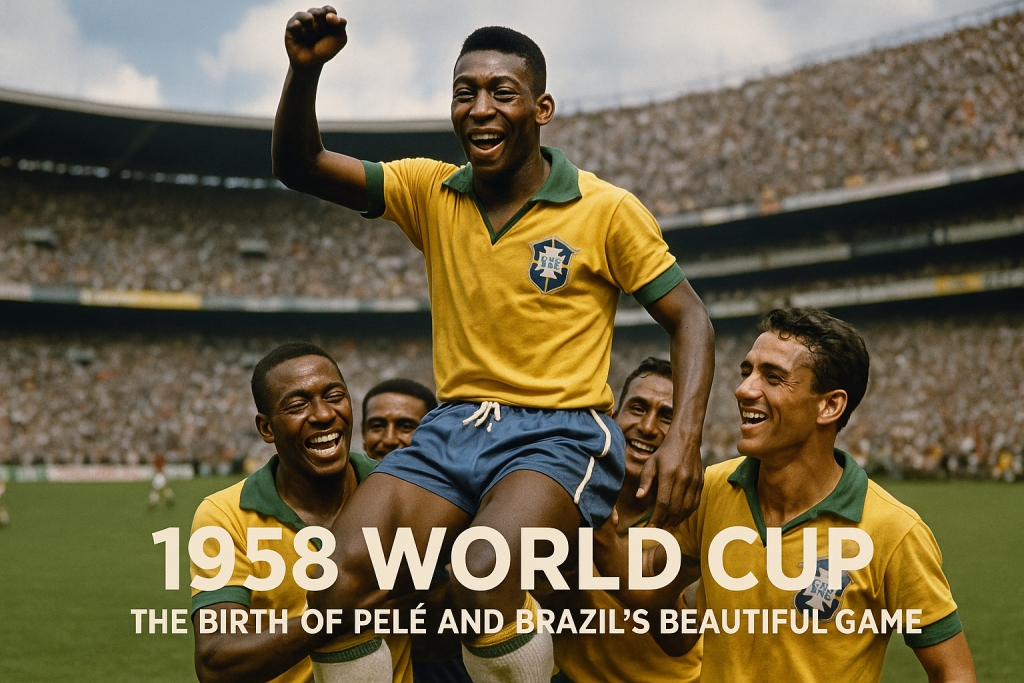The 1958 FIFA World Cup in Sweden is remembered not only as a tournament but as the beginning of a new era in world football. It was a summer that saw the arrival of a teenage prodigy who would change the sport forever, while also marking the end of dominance for European giants who had defined the post-war game.

Brazil arrived in Sweden with expectations but also with the scars of heartbreak. Eight years earlier, they had lost the 1950 final in Rio in front of nearly 200,000 fans in what became known as the Maracanazo. In 1954, they fell to Hungary in the infamous “Battle of Berne.” By 1958, the Seleção sought redemption — and found it in the form of a 17-year-old named Edson Arantes do Nascimento, better known as Pelé.
Pelé’s rise during the tournament is the stuff of legend. After missing Brazil’s early matches due to injury, he announced himself in the quarterfinals against Wales, scoring the only goal of the game. In the semifinals, against a powerful French side led by Just Fontaine — who would finish the tournament with a record 13 goals — Pelé scored a hat trick in a dazzling 5–2 victory. The final in Stockholm, against host nation Sweden, confirmed his genius: two goals in a 5–2 triumph sealed Brazil’s first World Cup title.
The 1958 tournament was also significant for tactical evolution. Brazil became the first team to fully embrace the 4-2-4 formation, a system that emphasized balance between attack and defense while unleashing the creativity of Garrincha, Didi, and Pelé. Their success in Sweden would set the template for attacking football in the decades that followed.
For Sweden, the runners-up, it was a bittersweet campaign. Backed by a passionate home crowd, they stunned many with their resilience, defeating West Germany in the semifinals before falling to Brazil’s brilliance in the final. Meanwhile, France’s Fontaine wrote his own history: no player, before or since, has scored more goals in a single World Cup.
Above all, the 1958 World Cup changed the sport’s global story. It introduced Pelé, whose mixture of youthful audacity and sublime skill reshaped the imagination of football fans everywhere. For Brazil, it was the start of their identity as the jogo bonito nation — the Beautiful Game. For the world, it was proof that the World Cup could produce legends not just of an era, but of all time.